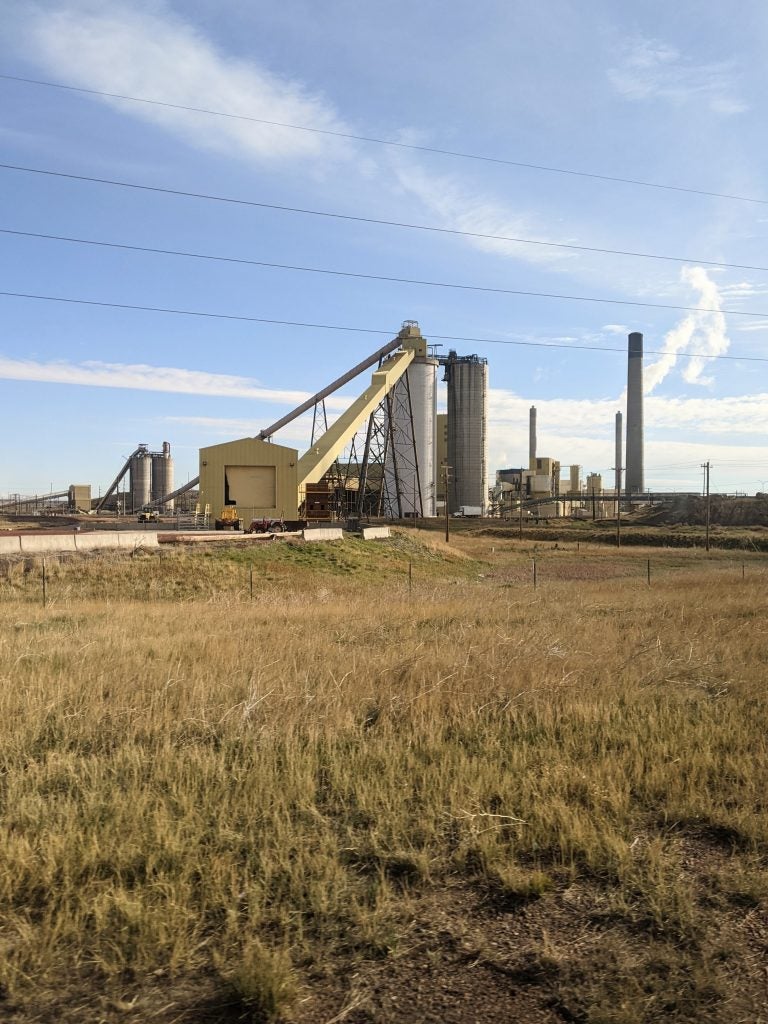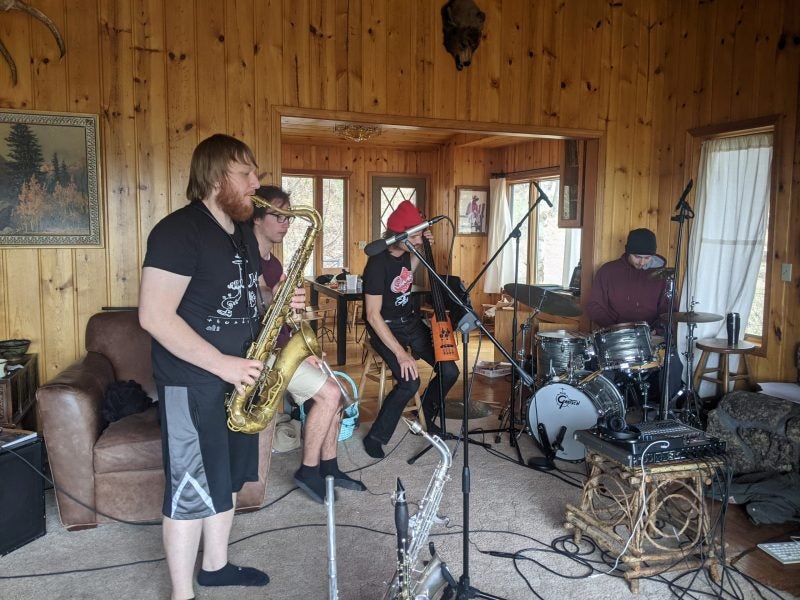In 2021, Center for World Performance Studies offered summer research grants to individual undergraduate students and teams, to pursue Performance Studies research projects that could be carried out “in place,” virtually or in-person, within guidelines of University travel restrictions. We invited proposals that included participation in community internships, lessons with community practitioners, travel for research and the creation of new performative work. Here Samuel Dunlap (SMTD ’21) provides an update on the project he led in May 2021:

In our initial funding proposal, I planned to lead a group of five artists to complete a multi-media art documentary about the ongoing effects of climate change in the state of Wyoming. In May 2021 we completed the trip to Wyoming where we shot video, wrote and recorded musical compositions, wrote poetry, and experimented with improvisation across media forms [Samuel Dunlap, trumpet; Caroline New, poetry; Peter Formanek, woodwinds; Jonathan Letts, Bass; Ellie Schmidt, Video; Jacob Patrone, Drums]. Now, after leaving Wyoming, we are in the process of integrating our creative artifacts into a completed video. This primarily consist of audio mixing and video editing.
Since leaving Wyoming, there are two main questions I reflect on as an important learning experience for the next collaborative project I lead:
Which parts of intermedial and creative collaboration are iterative/emergent, and which are planned/structured?
As the group leader, I felt polarizing pressures from both funding institutions and collaborators about how I should organize the project. Some would ask for certainty about the project’s final destination, whereas others requested open space to allow the project to take shape as we worked on it. Whenever we relied too heavily on either of these organizing principles, the creativity of the group would stagnate. On the one hand, it was easy to run ourselves into “analysis paralysis” where we would spend so much time talking and thinking about what we were going to do that we wouldn’t get around to doing the thing itself. Similarly, we might make a plan and then realize halfway that we had to abort or change directions. For example, there was no good way to plan or prepare for the exact time and location for taking videos of the mines and the forest fires (it depended on the lighting, the weather, safety conditions, etc.) On the other hand, there were times when leaving plans open scattered the group’s efforts inefficiently. For example, there would be times when artists would come up with interesting contributions, but they didn’t necessarily relate to the project or its goals. There are many things I will do differently the next time I lead this kind of collaboration, and part of that will include designating times for planning and times for improvisation. The model I came up with looks like this:
| Phase 1 (pre-residency) | Phase 2 (residency) | Phase 3 (travel/tour) |
| Writing all poetry and compositions, mapping them onto a video sketch | Shooting video and internalizing compositions | Improvising on compositions. Compositional ideas may be manipulated or broken |

How can artists play a role in the fight against climate change? Should musicians (and specifically improvising musicians) be expected to make explicit the “topic” of their musical creations, and if not, how can musicians be supported within the research community?
I have never titled my compositions. I am not sure if it is because they aren’t about any lexical idea or they are about something that can’t be represented by words (the music is about the experience of making music itself), or if the musical material itself is too non-specific to represent an idea captured in the length of a title phrase. One thing I struggled with on the trip was channeling my musical ideas and aesthetic to describe, raise awareness about, or functionally heal global climate problems. Instead of forcing direct inspiration from climate justice (such as trying to write music that mimicked the sounds of the research sites) I tried to think about how music could play a supportive role within the final collaborative product that included more explicit forms of media (video and poetry).

Art can’t take carbon out of the air, but artists are uniquely positioned to collaborate with others who have different perspectives, draw from large bodies of knowledge, and
develop a creative awareness to produce novel, true, and beautiful solutions.
Below is a link to the blog where our travel experiences were documented:


